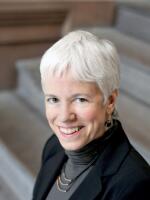Students in the New York public university systems rallied at the State Capitol in Albany to end what they say is a built-in flaw in the state’s student aid policies. They say it’s costing the State and City University systems nearly $150 million a year — but their requests for more money come at a time when the state’s finances are tightening.
The state Tuition Assistance Program, or TAP, which offers aid to students with a maximum award of $5,165 a year, has not kept up with rising tuition prices at many SUNY and CUNY schools. Tuition has been rising by as much as $200 a year at some of the larger university campuses in the systems, and is now $6,470 at SUNY and $6,330 at CUNY. When TAP does not cover the full costs of the higher tuition, the colleges and universities are required to pay the difference. That is now costing the State University over $67 million, and CUNY schools around $74 million.
Barbara Bowen, President of the Professional Staff Congress, which represents 25,000 faculty at CUNY, says it’s a flaw that needs to be corrected.
“This is a structural deficit,” Bowen said. “And that deficit has to be closed. It’s not good policy.”
Students who spoke at the rally say the “TAP gap” has led to erosion of class offerings and services at campuses. Smith Varghese, a Queens College student and New York Public Interest Research Group member, says limited course offerings delay graduations. And she says classes are overbooked.
“I literally have to go to class fifteen minutes early, because my class is overcrowded,” said Varghese. “You won’t get a seat.”
Others students say they face long waits for health care appointments, and answers from understaffed and overstressed financial aid offices.
Fred Kowal is the President of United University Professions, the union representing professors and other faculty at SUNY. He says the public university systems have never fully recovered from cuts endured in the recession of 2008 and 2009.
“I come from upstate,” said Kowal, who was a professor at SUNY Cobleskill before becoming UUP president. “The economy has stagnated. Where the SUNY campuses are, there needs to be money invested in those campuses, for the communities to grow.”
Kowal says he’s in favor of adding new taxes for the state’s wealthiest and shifting money from other programs to help fund public colleges and universities.
The state faces a $2.6 billion budget gap, and the state comptroller determined that the Legislature cannot add more than $190 million to the governor’s $175 billion spending plan. Assemblywoman Deborah Glick , Higher Education Committee Chair, who also spoke at the rally, says the maximum limit for TAP awards needs to increase to keep pace with the tuition hikes. And she says it needs to be part of the next state budget.
“We have to close that gap,” Glick said.
The Assembly and Senate will release their spending plans next week, and Glick says she’s pushing to include a proposal to fix the problem.




